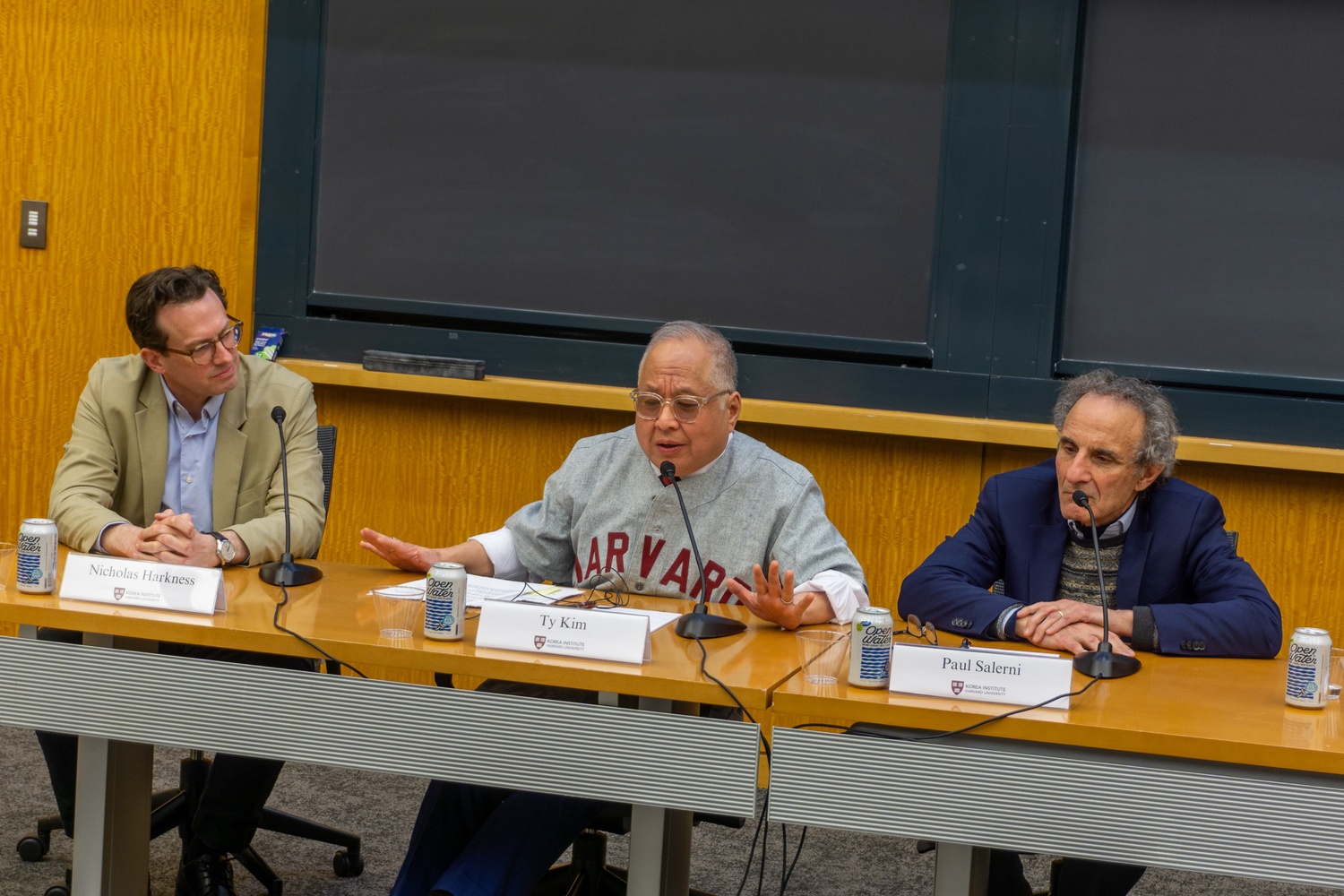
News
Summers Will Not Finish Semester of Teaching as Harvard Investigates Epstein Ties

News
Harvard College Students Report Favoring Divestment from Israel in HUA Survey

News
‘He Should Resign’: Harvard Undergrads Take Hard Line Against Summers Over Epstein Scandal

News
Harvard To Launch New Investigation Into Epstein’s Ties to Summers, Other University Affiliates

News
Harvard Students To Vote on Divestment From Israel in Inaugural HUA Election Survey
Artist Profile: Ty Kim on ‘Earl.’ and the Power of Passion

Born into poverty, drafted for World War II, and fired from UC Berkeley for controversial political views, Earl Kim became a musical prodigy and one of the unknown greats of classical music against all odds. 27 years after his death, Emmy-winning director and producer Ty Kim created the documentary “Earl.” with barely any video footage, interviews, or excerpts of Earl Kim’s composition. Both Ty Kim and Earl Kim’s stories reveal the power of passion and art, which transcends even the most confounding circumstances.
Ty Kim has worked on over 50 pieces for the news series 60 Minutes on CBS. Despite his robust experience, he described Earl Kim’s story as so “complex, in-depth, [and] inspiring” that he knew he had to make a documentary out of it.
Earl Kim’s family immigrated from Korea to California, where they worked in the fields of Dinuba. When he turned nine, he received free piano lessons from a church organist for a year and discovered his musical talent. Ty Kim said that “his ability to duplicate sound” was unlike any other. Later, Homer Grun, a touring pianist, composer, and artist, took on Earl Kim for free, teaching him for the next seven years.
But Earl Kim’s career was set to a halt when he was drafted for World War II.
“Earl Kim served his country as a Combat Intelligence Officer, flew over Nagasaki one day after the atom bomb was dropped,” Ty Kim said.
Despite the trauma of war and poverty, Earl Kim maintained his love for music. After the war, he was hired as a professor at UC Berkeley. However, he was soon fired from the university for refusing to sign the California Loyalty Oath — requiring him to unconditionally defend the United States and California against enemies of the state.
From Berkeley, he went on to teach at Princeton, then Harvard, where he spent the rest of his career. His work at Harvard defined his life and ultimately enabled him to continue his passion.
“He [could] have been living a very different life without music in his life, without arts in his life,” Ty Kim said.
Earl Kim’s musical genius let him beat his poverty even when circumstances were against him.
Despite his prolific career, Earl Kim went largely forgotten. Fortunately, Ty Kim found his story and brought it back to life.
Ty Kim said, “[His story] seems to be resonating with people.” He noted that one of the students in his Harvard Business School section messaged him over 20 years since they had last spoken just to tell him that the documentary’s trailer made him cry.
Ty Kim is an expert in documentary-style telling and knew that Earl Kim carried the key characteristics to move and entertain an audience. He said Earl is “passionate, articulate, and [...] living on the edge of human existence” and that his narratives had “twists and turns that you don’t expect.” Ty Kim shared his rule of thumb for deciphering if a story might be interesting for an audience: “If you think it’s going to turn right and it turns left, that gap is what [...] creates fascination with the viewer, the audience.”
But making this film was not easy. “It was challenging a lot of time. I don't say that lightly,” Ty Kim said.
Ty Kim had to make a documentary with little video footage or photo evidence of Earl Kim. “[Earl Kim] was very private. He didn't like to go out in public to public concerts. He stayed in his studio,” Ty Kim said.
When asked why he didn’t do a biopic or include recreations, he said, “I didn’t want to have false actors.” He wanted an entirely authentic documentary of Earl Kim.
Ty Kim conducted over 33 interviews across three continents to learn more about Earl Kim’s life and gather material. He discovered that Earl Kim had conducted two major interviews that were never broadcast and did immense research and negotiating to find these interviews. He brought the same determination to every part of the film, whether scouring for more photos or instrumental pieces of Earl Kim.
Just as music defined Earl Kim’s life, Ty Kim discussed how music can define film. In Ty Kim’s words, “music comes from within” and builds emotion, whether in real life or film. Music contributes to film just as much as any other element and, accordingly, Ty Kim wanted Earl Kim’s music as the score to the documentary. He combed through the Harvard archives in Houghton Library to find massive boxes filled with Earl Kim’s old manuscripts, notes, and work and employed an orchestra to bring these pieces to life.
While Ty Kim’s and Earl Kim’s stories appear completely different, they share a clear determination for the arts, even when facing outstanding adversity. Although Earl Kim was drafted into the military and fired from his work as a professor, he still became one of the greatest musicians of our time. Likewise, Ty Kim created an award-winning documentary despite lacking video and audio footage. Their stories reveal that passion triumphs even in the face of hardship.
Want to keep up with breaking news? Subscribe to our email newsletter.
